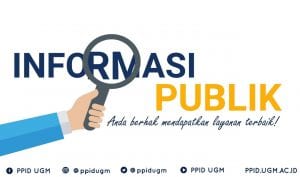Written by Johanes Koraag
Yogyakarta was once known as a city with a high level of tolerance, because, as a city of education, every year it receives students from various regions with diverse backgrounds. However, this situation has recently undergone a significant change. Events such as the refusal of non-Muslims to live in Muslim neighborhoods in Bantul, the destruction of Christian graves in Sleman, and the rise of exclusive boarding houses that only accept tenants with certain religions show that there has been a decline in the level of tolerance among the people of the Special Region of Yogyakarta. This certainly needs to be scrutinized, given special attention, and solutions sought in order to restore the image of Yogyakarta as a tolerant city.
Jekonia Tarigan, who has just completed his doctoral studies at the Indonesian Consortium for Religious Studies (ICRS), Universitas Gadjah Mada, presented the results of his dissertation research entitled, “”Illness as Interreligious Encounter: A Study from Religiously-Affiliated Hospitals” at Wednesday Forum, April 12, 2023. The research was conducted by Jeko – as he is familiarly called – based on his experience accompanying a patient who suffered from an illness and had to receive intensive treatment in the hospital. In the process, Jeko observed an interesting phenomenon that disturbed his academic spirit. He noticed that in Yogyakarta there are three main religiously affiliated hospitals that do not limit patients seeking treatment or care based on a particular religion, but rather open themselves to anyone with any religious background, and all receive the same quality of service. Jeko conducted his research at Bethesda Hospital (Protestant), Panti Rapih Hospital (Catholic) and PKU Muhammadiyah Hospital (Islamic). According to Jeko, the participation of religious institutions in the provision of health services to the community has succeeded in creating a unique space that allows interfaith encounters and has also succeeded in breaking down the barriers that have limiting interfaith interactions.
Jeko found that when people are at a weak point in their lives, when they are sick and in need of care, that is when they realize their fragility as humans. No matter how great one’s social achievements are, no matter what one’s background is, one can get sick and need help, even a doctor is not immune from illness. The need for health has created an opportunity that religious institutions to get involved in providing good health facilities for the people in their neighborhood. If we look at the history of the establishment of hospitals with religious affiliations in Yogyakarta, the data show that Christians were the first to establish Bethesda Hospital, on May 20, 1899. Then Muslims, in this case Muhammadiyah, established PKU on February 15, 1923. Catholics established Panti Rapih on September 14, 1929. The background of the establishment of hospitals by religious institutions in Yogyakarta is due to the needs of the people of each religion for adequate health facilities. All religious institutions that established hospitals had the same humanitarian and universal motivation to save human lives. From the beginning, they did not discriminate who they would help and serve; anyone could come and get the same treatment.
In the process of his research, Jeko found that most of the patients he interviewed did not consider or care about the religious affiliation of the hospital to which they went for treatment. For them, the main factor was the distance from their homes. In situations involving the safety of human life, the closest health facility would be sought regardless of religious affiliation. Jeko found this in the Kumetiran Catholic community who preferred to seek treatment at PKU Muhammadiyah Hospital, as it was the only health facility close to their neighborhood. Another thing that is more personal is the comfort factor. When a patient feels compatible and comfortable with the services provided by doctors and medical personnel at a health facility, then he/she does not feel any objection to bringing other family members to get treatment there, even though their religious affiliation is different. The comfort experienced by patients and their families when seeking treatment or being treated in hospitals with certain religious affiliations is also influenced by the provision of good and comfortable worship facilities. For example, Bethesda Hospital provides “Mushalla” and prayer mats for patients and their families. In addition, to ensure the availability of halal food for Muslim patients, the hospital employs Muslim staff in their kitchens. These are what Jeko describes as the ‘flourishing experiences’ that occur between religious communities within the hospital environment. The unique experiences that patients have during their hospitalization and treatment leave a deep impression on them, such that one Muslim respondent emphatically stated, “There is no prohibition to choose a Christian hospital, nor is there an obligation to choose an Islamic hospital.”
While there are many positive impressions created by interfaith encounters in the hospital environment, there are also many negative things that happen there. For example, there are allegations that the hospital proselytizes patients by installing religious symbols in every room, so there are some patients’ families who object and ask the hospital to remove the symbols, because they feel their faith is disturbed by the existence of these objects. Apart from cases like this, what happens a lot is the creation of an intensive interaction space between religions. Because in the hospital environment an atmosphere and a common need is created, namely wanting to get healing and health. It turns out that in suffering there is a positive meaning created, namely the occurrence of interfaith encounters.
Furthermore, Jeko also found that interfaith encounters in hospitals are also able to change one’s opinion and assessment of a particular religion. For example, a Muslim health worker who works in a Christian hospital actually interprets the cross as one of the things that motivates him. He internalizes the meaning of the cross as a form of sacrifice and the best love and reflects that he must also serve others wholeheartedly. There was also a Muslim earthquake victim in Bantul who received treatment in a Christian hospital for three years. During his treatment, he interacted with people of different religions, which eventually changed his paradigm towards the hospital’s religious affiliation.
Ultimately, Jeko framed the interfaith encounter that took place in the hospital environment as a transformative experience. The encounter in suffering that occurred between patients and their families with fellow patients and also with medical staff turned out to be able to change their paradigm to be relatively more moderate and tolerant. However, Jeko recognizes that the process of change is not possible in a short period of time, it requires a gradual process and long process until someone experiences the paradigm shift. For Jeko, these positive things should continue to be pursued by creating alternative spaces for interfaith encounters that can ultimately contribute to shaping Yogyakarta society to remain highly tolerant of differences.


